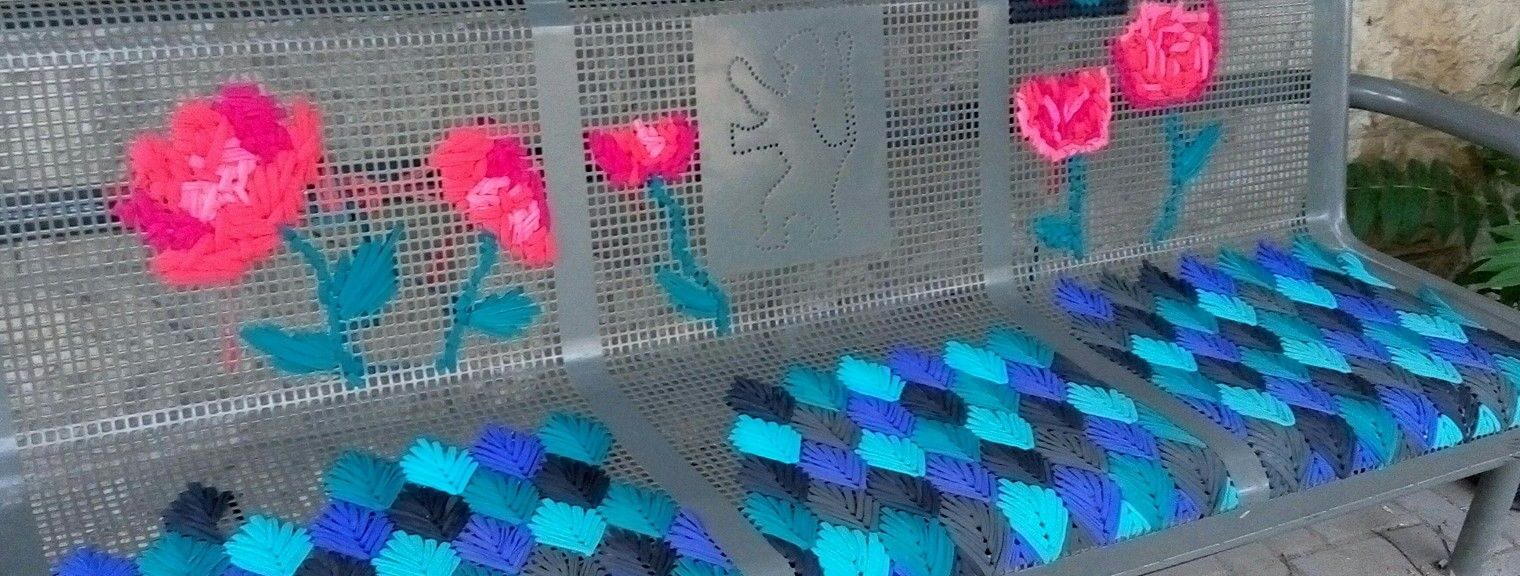Walking down Bethlehem Road in Jerusalem, you can’t help but notice two public benches colorfully enhanced with embroidered flowers and geometric patterns. Artist Talya Adi started the project only in late July and is awed by the number of people who have already shared photos of her handiwork on social media.
Adi tells ISRAEL21c that it all began when she saw a notice from the Greater Baka Community Council inviting artists to create site-specific works in public areas of this hip part of Jerusalem.
A 30-year-old graduate of the prestigious Bezalel Academy of Art and Design in Jerusalem, Adi is primarily a ceramic artist. She had never done embroidery and considers this project a sort of sculpture inspired by the needlework of her grandmother, Phyllis Schlesinger.
“When I saw the benches, they reminded me of my grandmother’s needlepoint grids, so I’m doing it in honor of her,” says the local resident, whose American expatriate grandmother also lives in Jerusalem.
Adi chose a bench outside a senior-citizens’ residence and attached a sign encouraging people to drop by at specified times to help her.
“One of the reasons I love this project is that it’s not just me,” she says. “The idea was always to work on the street and involve the public, and we are getting more and more people coming for two-hour sessions. The first time, I was surprised that anybody showed up.”
The project has attracted young and old of all nationalities. One woman dropped off her two daughters to work with Adi for a couple of hours during August, when summer activities were finished and school hadn’t yet begun.

The artist is hopeful that because the neighbors feel a sense of ownership, they’ll take good care of the benches. “People seem to really appreciate it and I think they’ll want to protect it from dirt and vandalism,” she says. “Those who helped me will know how to retie a rope if it gets loose.”
She intended to use natural upcycled fabrics, but a trial with T-shirt material proved the cotton no match for the harsh sun. “So I tried synthetics and then got to what I think and hope will survive both sun and rain: bathing-suit material,” she says. “If it does become unbearably hideous it’s simple to take it apart, but I do hope it will stay.”
Adi would like to embellish many more benches depending on the availability of funds from the community center.
Having left art for a few years for a social-work position, she is now giving workshops in crafts and upcycling. “The benches are my first work as an independent artist, and it’s been an amazing experience.”














